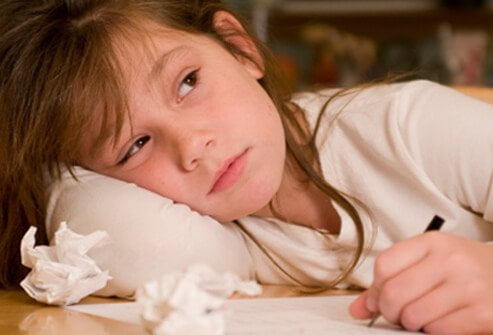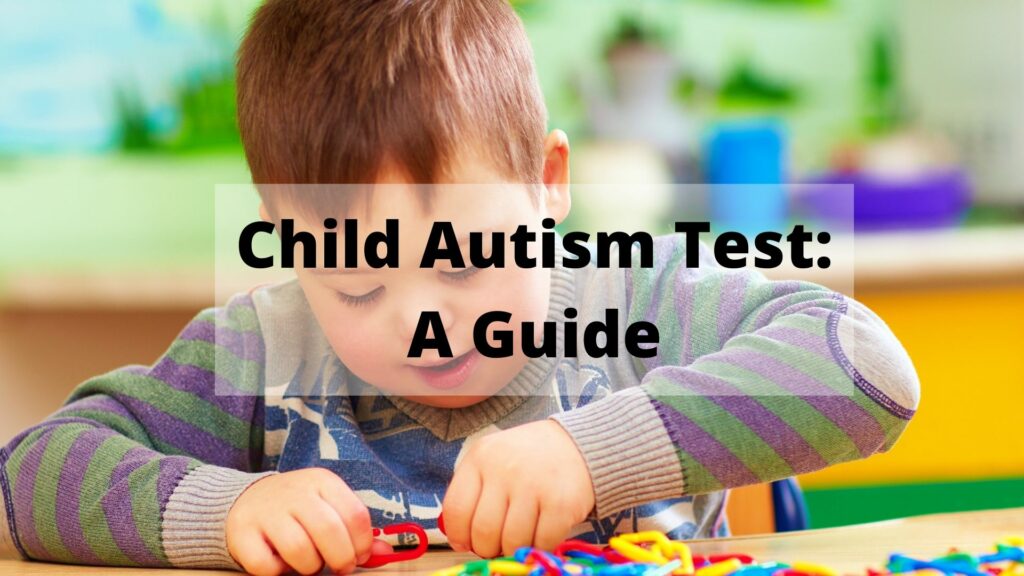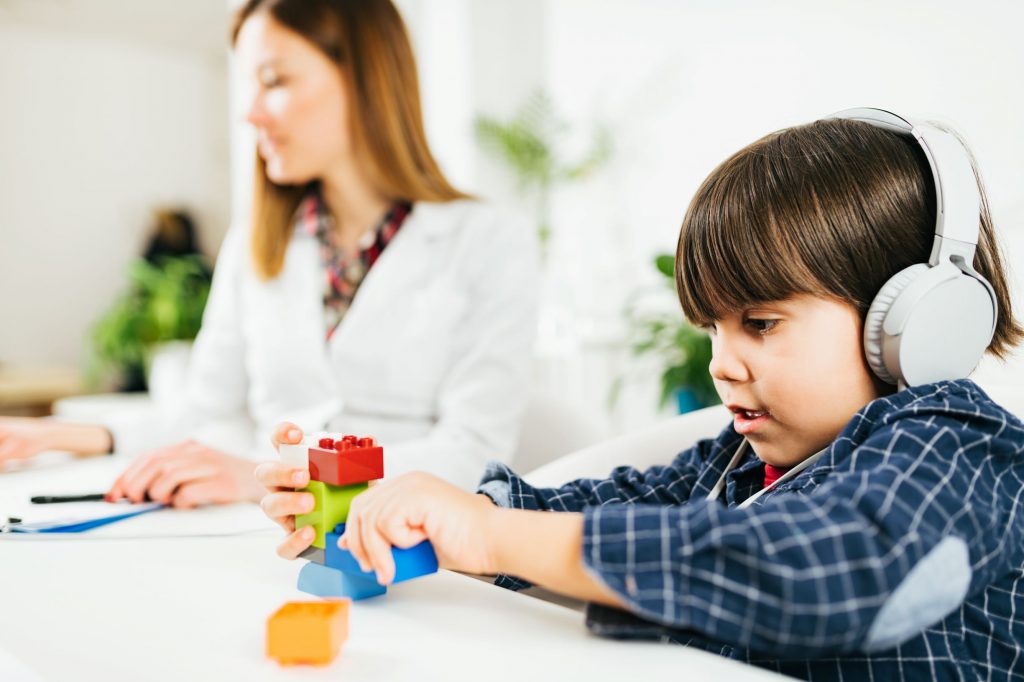Child Autism Test
Autism is a developmental disorder that affects a child’s ability to communicate and interact with other people. Autism spectrum disorders are typically in diagnosis within the first three years of life. Therefore the symptoms may not be recognized until later in childhood or adulthood. There is a child autism test available for parents to use when diagnosing their child. In this article, we will discuss some of these child autism tests and how they work.
Contents
What Is Autism?
Autism spectrum disorder (ASD), or autism, is a broad term used to describe a group of neurodevelopmental conditions. Most importantly, it is a child’s brain development that causes social and communication skills to be impaired. Therefore it can cause difficulties in understanding, communicating with others, interacting socially, or making friends.
Autism cannot be cured; however, it can be managed by early diagnosis of child autism test (such as the M-CHAT) at an early age when intervention therapies are most effective.
Symptoms Of Autism

ASD symptoms usually become apparent between the ages of 12 and 24 months. However, symptoms can show up sooner or later. Early signs include a significant delay in language or social development.
The DSM-5 categorizes ASD symptoms into two categories:
- Communication and social interaction difficulties
- restricted or repetitive patterns of behavior or activities
However, a person must have symptoms in both of these areas to be in diagnosis with autism.
Communication And Social Interaction
Many children with ASDs have communication difficulties, and many of them develop before age 5.
When they get older, some may have problems with talking or very restricted speaking abilities. However, other children on the autism spectrum might develop language skills at a varied rate. If one thing is fascinating to them, for example, they may acquire a robust vocabulary for discussing it. However, when it comes to talking about other things, they may struggle.
Restricted Behavior Or Activities
Aside from the communication and social difficulties already mentioned, individuals with autism may experience symptoms associated with body movements and activities.
These can include:
- repetitive movements, like rocking, flapping their arms, spinning, or running back and forth
- lining objects, like toys, up in strict order and getting upset when that order is in a disturbance.
- attachment to strict routines, like those around bedtime or getting to school
- repeating words or phrases they hear someone say over and over again
- getting upset over minor changes
- focusing intently on parts of objects, like the wheel of a toy truck or the hair of a doll
- unusual reactions to sensory input, like sounds, smells, and tastes
- obsessive interests
- exceptional abilities, like musical talent or memory capabilities.
Other Symptoms
Some autistic people might experience additional symptoms, including:
- delayed movement, language, or cognitive skills
- seizures
- gastrointestinal symptoms, like constipation or diarrhea
- excessive worry or stress
- unusual levels of fear (either higher or lower than expected)
- hyperactive, inattentive, or impulsive behaviors
- unexpected emotional reactions
- unusual eating habits or preferences
- unusual sleep patterns
Types Of Autism
The DSM-5, which is the most up-to-date version, was published in 2013. The DSM-5 now recognizes five distinct ASD subtypes or specifiers. They are as follows:
- with or without accompanying intellectual impairment
- with or without accompanying language impairment
- associated with a known medical or genetic condition or environmental factor
- associated with another neurodevelopmental, mental, or behavioral disorder
- with catatonia
Someone can receive a diagnosis of one or more specifiers.
Before the DSM-5, autistic people may have received a diagnosis of:
- autistic disorder
- Asperger’s syndrome
- pervasive development disorder-not otherwise specified (PDD-NOS)
- childhood disintegrative disorder
Impact of Autism on Thinking
A child with autism may have trouble making eye contact and forming friendships. Therefore, some children also struggle to communicate or behave appropriately in social situations. These symptoms can be linked to a child’s specific diagnosis, but they’re often hard to recognize because they vary from person to person and change as kids get older. Autism is usually diagnosed between the ages of 18 months and six years.
Autism impacts these development areas in a child –
Narrow Focus

Children with autism may focus intensely on things while lacking the ability to see the big picture. This might show up in a youngster remembering specific facts of a tale but not the main idea of the story. They may have trouble articulating their own or others’ thoughts. Moreover, parents and educators can use patterns to expose information’s larger pattern, which might help children with autism to better understand.
Language Development Issues
Language difficulties are one of the most common ways that autism affects learning, therefore language development and speech delays are frequently the first indications that a kid may have the condition. According to The National Institute on Deafness and Other Communication Disorders, early intervention that takes into account a child’s interests is one of the most effective methods for correcting language development problems.
Poor Nonverbal Skills
Many individuals who can’t communicate verbally make up for it by using nonverbal communication. Unfortunately, this may not be an option for some autistic children who also have difficulty communicating nonverbally. However, some autistic children might have trouble making eye contact and expressing themselves through gestures.
Attention Issues

Moreover, children with autism may have a harder time paying attention. They may be distracted by trifles like the texture of their clothing, bright lights, noises, and more, which barely even register for non-autistic individuals. They might find it difficult to focus on information that is outside their area of interest. Parents, caregivers, and professionals can assist autistic.
What is an Autism Test?
An autism test is in use to determine whether a child may have an autistic spectrum disorder. Autism tests should only be conducted by trained professionals, such as psychologists and psychiatrists who can look for factors that indicate the child’s developmental pattern does not follow typical patterns seen in their age group.
These experts will also take into account family history of autism, child’s age, and results of any previous autism tests.
Benefits of this Test
The test will also assess the child’s overall development in several areas including personal relationships, communication skills, play activities, motor coordination skills, self-help abilities, or school performance.
However, it is important to remember that no single factor determines whether a child has an autistic spectrum disorder.
An autism test should never be conducted without the child’s parent or guardian being present during the entire process, to ensure that it is fair and respectful of their child’s privacy.
Sample Questions on Child Autism Test
The child autism test is a questionnaire that evaluates social and communication skills in children aged 18-24 months old to determine whether they are at risk for developing autism.
Moreover, here are some sample questions that may give you an insight into how this test might look.
Is it simple for your kid to join in with other youngsters when they’re playing games?
- Very Often
- Often
- Sometimes
- Rarely
- Never
Is your child alert and looking around to see what you’re looking at if you turn your head in another direction?
- Very Often
- Often
- Sometimes
- Rarely
- Never
Is your kid bringing things to you or holding them up for you to see — not for you to help, but simply because they want to share?
- Very Often
- Often
- Sometimes
- Rarely
- Never
Is your child’s passion something that takes up so much of their time that they don’t do anything else?
- Very Often
- Often
- Sometimes
- Rarely
- Never
Some Sample Questions
Is it true that your youngster looks at everything, most importantly, if you point to something across the room?
- Very Often
- Often
- Sometimes
- Rarely
- Never
Do your kids enjoy playing sports?
- Very Often
- Often
- Sometimes
- Rarely
- Never
Is your kid able to use one finger than to ask for something or seek assistance?
- Very Often
- Often
- Sometimes
- Rarely
- Never
Who is The Child Autism Test For?
Moreover, there are child autism tests for all different age groups. The first child autism test is in administration at 18-24 months. The second child autism test is given between 30-36 months. However, for young children who cannot speak yet to be tested, other child autism tests can assess their ability to communicate their wants and needs by using eye gaze or pointing.
How Accurate Is This Child Autism Test?
This quiz is not a diagnostic tool. Therefore, a licensed healthcare professional can only determine whether you have a mental health condition.
Why Should One Take A Child Autism Test?
Child autism tests are available to help parents determine whether or not their child has an ASD. the sooner a child starts receiving treatment, the better because children with Autism Spectrum Disorder can improve as they age and receive therapy.
This autism test may be used by his/her doctor to track developmental milestones against standardized norms during early childhood. Child autism test may also be in use to determine whether or not a child’s development is in delay.
Procedure Of The Child Autism Test
For this test, a parent, caretaker, or legal guardian can answer these questions for their child. this questionnaire usually takes around ten minutes. The parent can select one option from the multiple options available. However, this test is not diagnosable. A mental healthcare professional may provide a better insight.
Results and Interpretation
If the child scores high on the child autism test, then he or she will be recommended for further evaluation by an expert child psychologist with state of mind tests such as M-CHAT-R.
Treatment

There are no “cures” for ASD. Rather, certain therapies and other considerations can help autistic people feel better or alleviate particular symptoms for many of them. Therapies such as:
- behavioral therapy
- play therapy
- occupational therapy
- physical therapy
- speech therapy
Therapeutic massage, weighted clothing and blankets, and meditation practices may all assist some autistic people to cope with their condition. Results, on the other hand, will vary. Some individuals may profit from specific techniques while others might not.
Alternative Remedies
These are controversial, and some can be harmful. Alternative therapies include therapies such as:
- high-dose vitamins
- chelation therapy, which involves flushing metals from the body
- hyperbaric oxygen therapy
- melatonin to address sleep issues
When deciding whether to invest in any alternative therapy, parents and caregivers should consider the research and financial costs as well as any potential benefits. In general, it’s ideal to seek advice from a medical professional if you’re unsure.
Conclusion
In conclusion, a child autism test is a screening for autism spectrum disorder (ASD) in children who are between 18 and 36 months old. The goal of the test, which can also be in administration by parents or medical professionals, is to identify ASD early so that intervention services can begin as soon as possible. To sum up, this blog post has provided some information on what you should know about tests for autistic disorders in young children. Have you had your child screened? If not, it’s important to get them tested at their next checkup with your pediatrician. We hope this article has helped answer any questions you may have had about testing for ASD in younger age groups.
If you are looking for affordable Online Counseling MantraCare can help: Book a trial therapy session



